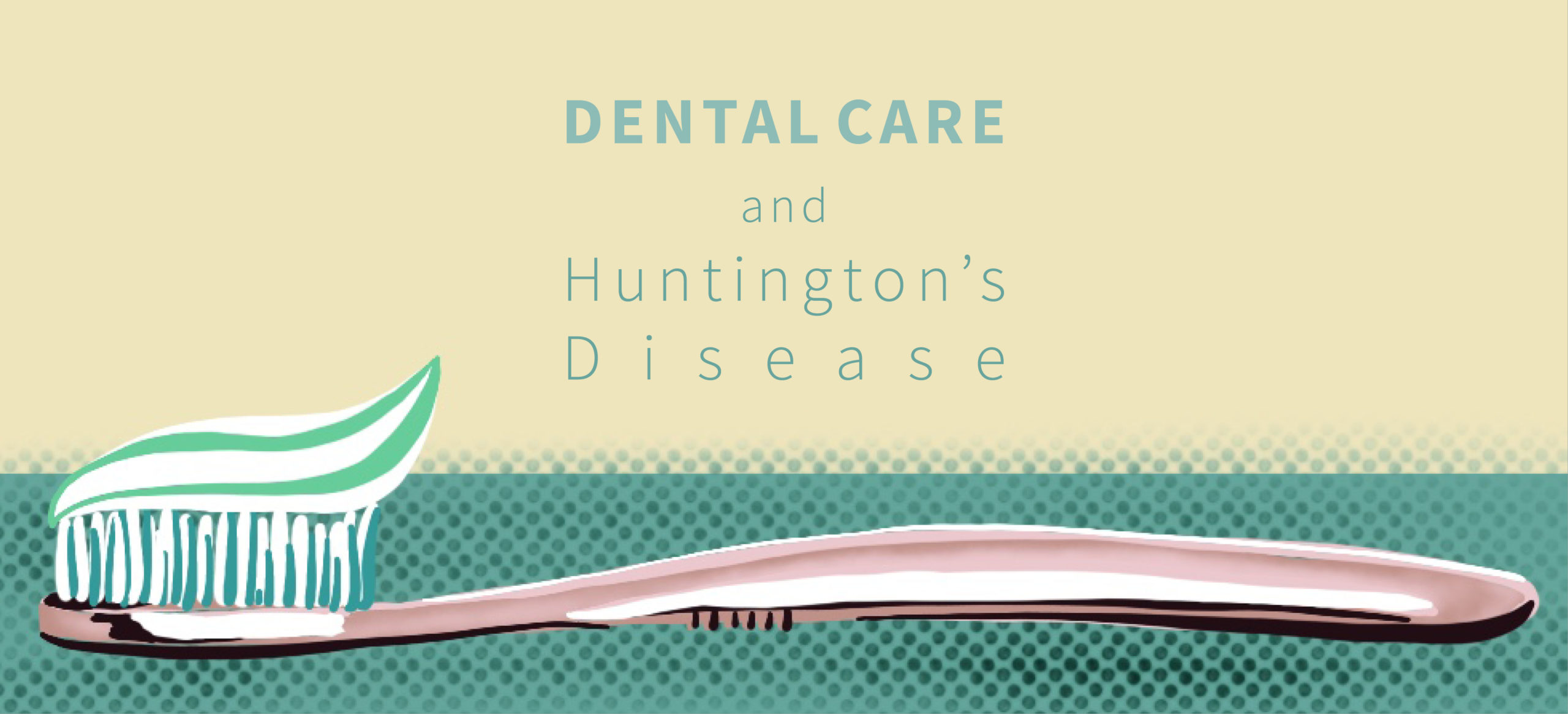Dental Care and HD
Significance of Dental Care
Adequate dental care is an integral part of maintaining healthy teeth and gums, which are vital not only for eating, but also for social communication. As a result, poor dental health can have both physical consequences (i.e. tooth decay, gum disease) and mental consequences (i.e. low self-esteem). Huntington’s Disease (HD) can often make dental care difficult for patients. The classic HD triad of motor, cognitive, and psychiatric clinical symptoms adversely impact the ability of patients to take care of their teeth and gums, leading to many dental and psychological issues.
Challenges In Dental Care for HD Patients
There is no genetic basis behind why HD increases the susceptibility of teeth to decay. However, largely due to the inhibiting symptoms of HD, HD patients have a higher clinical incidence of dental issues than normal. To this point, as HD progresses, there is an increase in the risk for cavities and periodontal disease, or infections of the structures around the teeth- such as the gums.
There are a variety of factors that contribute to this increased risk. For one, research has demonstrated that many HD patients benefit from a high-energy diet. Such a diet lends itself to high sugar intake. This sugar is processed by bacteria on the surface of teeth, and turned into acid that dissolves the tooth and causes tooth decay. Furthermore, as noted by the Huntington’s Association New South Wales, toxins freed by these bacteria can cause progressively worse irritation in the gums and eventually gum disease. These problems are exacerbated by a decrease in dexterity that patients with HD might experience, making it difficult to operate a toothbrush and dental floss.
Involuntary movements typical in HD patients can lead to bruxism, or grinding and clenching of teeth, which can cause them to deteriorate over time. Additionally, involuntary movements can make it difficult to stand still. As the disease progresses, patients might not be able to fully open their mouths, further complicating dental care. Dysphagia, or difficulty swallowing, may also develop with the progression of the disease and can make brushing teeth difficult.
Other factors can also contribute to HD patients not receiving or having access to adequate dental care. Common symptoms of HD, such as apathy and resentment, may contribute to HD patients not prioritizing their dental hygiene. Additionally, transportation to appointments, access to facilities, and the financial burden of dental care may pose substantial barriers for some people to access adequate treatment.
Furthermore, routine oral surgeries such as root canals can present with unique difficulties in HD patients. The use of anesthesia for surgeries generally presents with a higher risk for pulmonary aspiration (inhalation of the stomach contents) in HD patients due to chorea. As a result, any dental surgery requiring anesthesia requires careful consideration of many factors by the physician. This problem is accentuated by the tendency for HD to require anesthesia even for routine treatments that usually wouldn’t require it. A notable example is with routine dental fillings. They typically do not require anesthesia, but can be difficult to perform without anesthesia in late stage HD patients because of the chorea and behavioral complications that they may experience.
What Can Be Done?
While HD patients do experience unique challenges in dental care, poor dental health does not necessarily need to be a hallmark of the disease. There are many things patients and caretakers can do to maintain great dental health. For example, The Huntington Society of Canada advocates for preventative care in order to mitigate risks. This includes the continued support of caregivers, starting good habits early, and using alternatives to conventional dental care if need be.
Sources and Further Reading:
“Dental Care in Huntington Disease.” Huntington Society of Canada.
Lane and Manley, “The oral health and dental treatment of adults with Huntington’s disease.” Journal of Neurology, Neurosurgery & Psychiatry.
Manley et al., “Guideline for oral healthcare of adults with Huntington’s disease.” Neurodegenerative Disease Management.
“Oral Implications of Huntington’s Disease.” drcairo.com.
Rada, R., “Comprehensive Dental Treatment of a Patient With Huntington’s Disease: Literature Review and Case Report.” Special Care in Dentistry.
Saft el al., “Oral and dental health in Huntington‘s disease – an observational study.” BMC Neurology.
“The Importance of Dental Care in Huntington Disease.” Huntington’s New South Wales.

